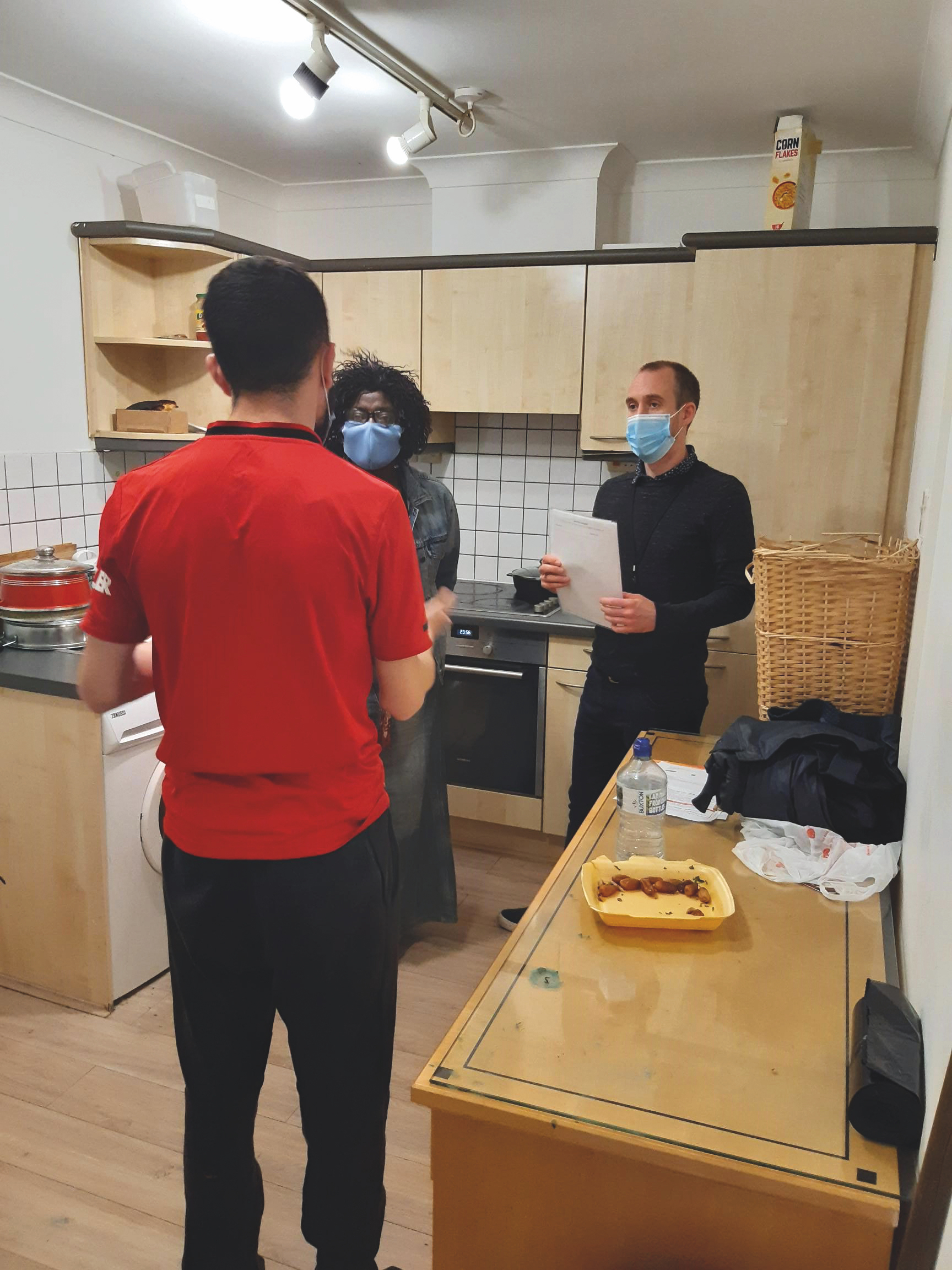Help us create an Environmental Health APPG
Join our campaign by urging your local MP to support the formation of an All-Party Parliamentary Group (APPG) on environmental health.

Camden Council’s Rogue Landlord Taskforce brings together the skills of EHPs and a tenancy relations officer to great effect.
Thursday, 10 June 2021, Sarah Campbell
Having identified a property owned by a well-known family of rogue landlords as likely to be an unlicensed HMO, his team obtained a warrant. “We executed the warrant and went in with the police. It was as expected: an unlicensed HMO. There were the partition walls to create additional bedrooms, there were inadequate fire precautions, undersized rooms, it was overcrowded. Everything we would expect. The tenants were all migrants, none of them had been given any tenancy agreements. They’d been given a name of a person who would come and collect the rent every week, and a mobile telephone number.”
After the inspection, an agent turned up at the property and threatened to turn off the electricity if the tenants didn’t vacate. What the agent perhaps didn’t know was that Kane’s team was now in constant contact with the tenants. “During the visit my colleague Annie [a tenancy relations officer] had advised them of their rights. We’d then given them a copy of a letter addressed to the police explaining the situation, which meant the police would understand if an illegal eviction was taking place.”
Taken to task
The agent did cut off the electricity – and one of the tenants called Kane’s team. Within a few days Kane had got the electricity company round to replace the meter and reinstate the power. The team is now in the process of applying for an emergency injunction to prevent any further harassment of these tenants. And the police know that those tenants are at high risk of illegal eviction.
This is a precis of a complicated case but illustrates how Kane’s team – Camden Council’s Rogue Landlord Taskforce – works. Set up in 2019, the Taskforce was initially funded through MHCLG’s Controlling Migration Fund. “The aim of the team was to address rogue landlords and letting agents who were exploiting migrant tenants living in unlicensed and dangerous HMOs,” Kane says. That remains its core purpose, and since last year it has been funded by the council. Camden has had an HMO licensing scheme since 2015. But with an estimated 8,000 HMOs in the borough, and a high proportion of migrants and students living in them who might not be aware of their rights as tenants, the Taskforce’s mission is to tackle the worst and most exploitative of those landlords.
There are four people on the team: Kane, an EHP and the operations manager; Annie Ngundam, a tenancy relations officer; one other EHP; and a solicitor. As we spoke, three further posts were being advertised.
Kane and Ngundam each has an obvious appreciation of what the other brings to the team. Kane says: “With a lot of our initial visits we’re turning up at 8am. Understandably there are some tenants who have refused us access. But the way we approach it is ‘This is nothing for you to worry about. We are here to support you.’”
This is where Ngundam comes in.
“I introduce myself and immediately try to let the tenant know what to do and empower them by informing them of their rights while the EHOs get on with their work,” she says. “And it works. If they didn’t have that knowledge, and the landlord started to harass them, they would probably just leave the property.”
Kane adds: “Whereas if we just went as EHOs to a property, we’d obviously refer the situation with the tenants on to our colleagues, but it might take a couple of days for a letter to be sent. The tenants could have conceivably been illegally evicted in that time.”
Tenants who know their rights
The empowerment of tenants is one of the Taskforce’s weapons. Tenants who know their rights put pressure on rogue landlords who try to stay under the council’s radar. Ngundam says: “We’ve had cases where the landlord has really backed off knowing that the council is involved. They might even get their solicitors to get in touch with us and sometimes issues are resolved that way.”
With MHCLG funding, the council is creating a tenant engagement project to build on this aspect of the Taskforce’s work. Kane adds: “I’m sure that many tenants would have been illegally evicted if we weren’t so forceful in our approach.”
Useful information
Another weapon in the arsenal is data analysis. The council is running a project to identify unlicensed HMOs using council tax data, land registry information, flatshare websites, even bin collection data. Kane says: “That isn’t quite in full flow yet but they’ve given us a list of about 1,000 properties that they believe could be unlicensed HMOs. We did a cross-referencing exercise where we took five of those and it does appear that four of them are unlicensed HMOs.”
In the last financial year, the Rogue Landlord Taskforce has issued civil penalty notices (CPNs) to landlords and agents totalling £255,000, prosecuted two with two further prosecutions pending and dealt with 65 requests for tenancy relations support. “But a lot of this is also focused on making sure that licence applications are then submitted so that the properties comply,” Kane says, describing a situation where one CPN triggered more than 30 licence applications from the same landlord.
Having the key skills of Ngundam, Kane and their colleagues in one close-knit team means the Taskforce is nimble enough to stay ahead of agents and landlords trying to make retaliatory evictions. “Our intervention involving tenants really does work,” Ngundam says. “I’ve had cases where after the tenants receive the letters from us, the landlord is on the phone to me. We now have some kind of contact with them, which we never had in the past.”

A version of this article appeared in the June issue of EHN (login required).

Help us create an Environmental Health APPG
Join our campaign by urging your local MP to support the formation of an All-Party Parliamentary Group (APPG) on environmental health.